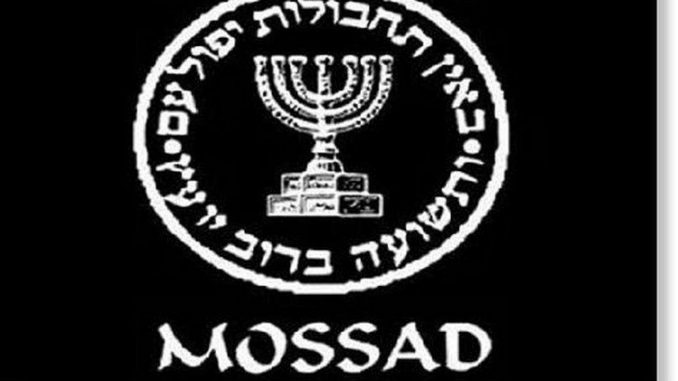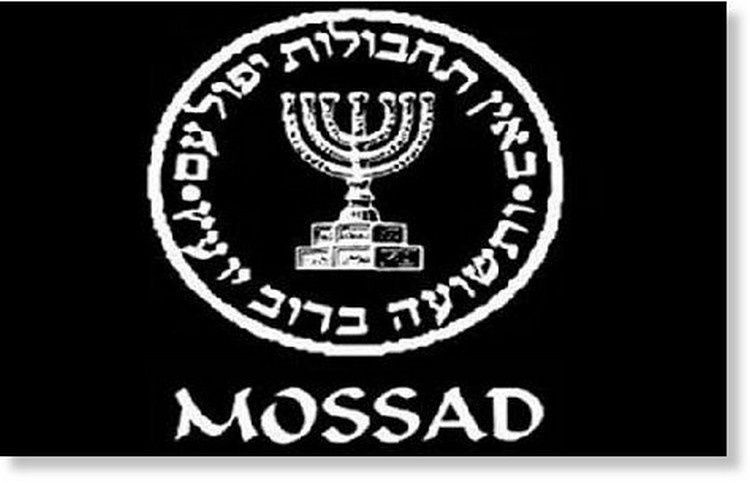

Yossi Cohen, ancien chef du Mossad israélien qui a quitté son poste il y a quelques années, a révélé que l’opération de sécurité pour infiltrer l’Iran a commencé au début des années 2000, qu’il a qualifiée de remarquablement réussie.
Selon Cohen, qui a été à la base des opérations récentes, dans un livre qu’il a publié récemment intitulé « L’épée de la liberté : Israël, le Mossad et la guerre secrète », Israël disposait à l’époque d’informations indiquant que le Pakistan et la Corée du Nord fournissaient des expertise nucléaire à Téhéran. Le précédent directeur du Mossad, Meir Dagan, a alors nommé un chef pour une nouvelle unité dont l’objectif était de déceler et d’éliminer le projet nucléaire iranien ainsi que le projet de production de missiles balistiques.
Il a précisé que cette unité a découvert, dans le cadre de son travail, des détails sur le soutien de l’Iran à des organisations et des bras tels que « le Hezbollah », « le Hamas » et « le jihad islamique ». La première mission a été d’introduire des équipements et du matériel « infiltré » au cœur du « Hezbollah » (une partie a été utilisée lors de la guerre de 2006) et au cœur de l’Iran, en plus de l’utilisation des cyber-armes contre les Iraniens et leurs alliés.
Il a déclaré : Ainsi, l’unité a pu suivre les activités de plusieurs chefs militaires et de scientifiques nucléaires, établissant un dossier pour chacun d’eux, contenant les moindres détails sur leurs habitudes, leur comportement quotidien et les lieux qu’ils fréquentaient.
Cohen se considère comme le concepteur des idées fondamentales pour ces missions, mentionnant lui-même qu’il a suggéré à plusieurs reprises d’initier une attaque contre l’Iran et le « Hezbollah », soit individuellement, soit conjointement, et que les chefs d’état-major de l’armée israélienne successifs s’y opposaient tour à tour. Comme il le dit.
Il a souligné que Netanyahu, le chef du gouvernement à l’époque, se tenait aux côtés des chefs d’état-major et avortait l’attaque, prétendant qu’elle pourrait entraîner une guerre dans laquelle plusieurs bâtiments dans les villes israéliennes seraient détruits.
Dans une autre partie du livre, Cohen critique Netanyahu pour avoir conclu un cessez-le-feu avec « le Hamas » en 2014, en déclarant : « À l’époque, une décision d’éliminer le Hamas devait être prise. » Mais Cohen offre un grand cadeau à Netanyahu en l’exonérant de la responsabilité de l’échec du 7 octobre 2023, la transférant aux dirigeants des agences de sécurité.
Concernant l’assassinat de Qassem Soleimani, le commandant de la « Force Quds » du « Corps des Gardiens de la Révolution » iranien, Cohen dit qu’il a proposé un plan détaillé qui a été soutenu par tous les chefs des services de renseignement, mais que le chef d’état-major Aviv Kochavi s’y est opposé, et Netanyahu l’a soutenu, demandant à Cohen d’en informer les Américains. Le président Donald Trump (durant son premier mandat) s’est énervé contre la décision de Netanyahu. De même, la directrice de la CIA, Gina Haspel, s’est plainte à Cohen (selon ce qui lui est attribué) : « Vos généraux sont comme nos généraux, ils n’aiment pas se battre ».
Cohen révèle à cet égard : « J’ai fait une visite urgente aux États-Unis, et j’ai fourni des informations abondantes sur Soleimani. Je l’appelais (le petit prince), et les Américains ont choisi ce nom pour l’opération d’assassinat. Après son succès (en janvier 2020), les Américains m’ont décerné une médaille de reconnaissance. Et lors de la guerre de 12 jours en juin 2025, les Iraniens se sont vengés en bombardant ma maison à Tel Aviv. »
Concernant cette guerre, Cohen dit qu’elle a entraîné la destruction des capacités de défense aérienne iraniennes, « la preuve étant qu’elles n’ont pas ouvert le feu sur les avions israéliens attaquants, et la destruction de la majorité de l’uranium enrichi ainsi que des réacteurs spécialisés dans l’enrichissement, et une dissuasion a été atteinte. L’Iran n’est plus aujourd’hui impénétrable et sait qu’Israël et les États-Unis sont libérés de la peur de l’attaquer. » Mais il s’étonne pourquoi la décision de chasser le « régime des mollahs » n’a pas encore été prise à Tel Aviv ou à Washington. En une phrase, sans détails, il dit que la dernière guerre a raté l’opportunité de renverser le régime iranien.
Dans son livre, notamment au chapitre six, Yossi Cohen raconte comment il a recruté un agent libanais pour le Mossad, proche d’Imad Moughniyeh, qui était chef des opérations du « Hezbollah ». Il déclare qu’il a fixé son attention sur « une personne instruite parmi les anciens activistes au Liban », qui avait vingt ans de plus que lui. Pour les besoins de l’écriture, il lui attribue le pseudonyme « Abdullah ». Il était très proche du parti. Il a découvert que l’homme cherchait un avenir économique sûr qui garantirait son futur en Amérique latine.
Par précaution, il l’a rencontré la première fois sans arme, mais il a porté un pistolet lors de la deuxième rencontre, puis il lui a collé un observateur à distance pour suivre ses mouvements comme un chercheur qui observe un rat dans son laboratoire. Il s’est avéré que l’appartenance d’Abdullah au « Hezbollah » était doctrinale à travers la croyance religieuse et son engagement à protéger le Liban, « ce qui est l’essentiel ».
La période temporelle était au début des années 90. La couverture choisie par l’agent du Mossad Yossi Cohen pour lui-même était celle d’un homme d’affaires argentin à la recherche d’un partenaire pour lancer un projet commercial au Moyen-Orient. Après plusieurs rencontres, où Cohen avait senti que l’homme l’aimait et lui faisait confiance, il lui a proposé qu’ils soient partenaires.
Après plusieurs rencontres, il lui a fait une proposition concernant la nature du travail, en disant qu’une entreprise leur proposait d’effectuer une étude sur le « Hezbollah », contre un montant d’argent respectable. Au premier abord, Abdullah a catégoriquement refusé la mission et a coupé les communications avec Cohen pendant plusieurs jours. Mais il est revenu soudainement et a exprimé son accord. Ils ont ensemble visité Israël et se sont promenés à Tel Aviv, sans qu’Abdullah ne sache que son partenaire argentin était un agent du Mossad.
La mission majeure était de connaître le sort des deux soldats israéliens ; Rahmim Cheikh et Yossi Fink, qui étaient tombés aux mains du « Hezbollah » après avoir été piégés par le parti en 1986. Bernd Schmidbauer, conseiller de sécurité du chancelier allemand Helmut Kohl, servait d’intermédiaire entre Israël et le « Hezbollah » pour un échange concernant eux.
Le « Hezbollah » a refusé de dévoiler s’ils étaient morts ou vivants, demandant en échange un nombre important de prisonniers libanais et palestiniens. Abdullah a réussi à obtenir la véracité de l’information selon laquelle ils étaient décédés de leurs blessures. Cela a radicalement changé le « prix de l’échange ». À ce moment-là, Cohen a réalisé qu’Abdullah était une prise très précieuse ; il avait d’excellentes relations, des capacités élevées et était fidèle dans l’exécution de son rôle.
Cependant, le plus important est survenu dans les mois et les années suivantes ; Abdullah a pu rassembler des informations étonnantes sur Imad Moughniyeh, qui était recherché dans 42 pays du monde, et les États-Unis avaient offert une récompense de 25 millions de dollars pour qui fournirait des informations menant à son arrestation, en raison de sa responsabilité dans le meurtre de nombreux Américains au Liban. Israël était intéressé à l’éliminer.
Cohen ne parle pas beaucoup des détails de cette opération, qui a eu lieu en 2008 à Damas, où il a été tué par l’explosion de sa voiture. Mais l’ancien premier ministre, Ehud Olmert, a reconnu en 2024 que son gouvernement était responsable de l’opération, et qu’une cellule du Mossad avait élaboré le plan et l’avait exécuté en collaboration avec les services de renseignement américains.
*Source : SadaNews
